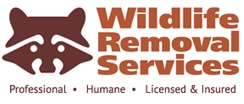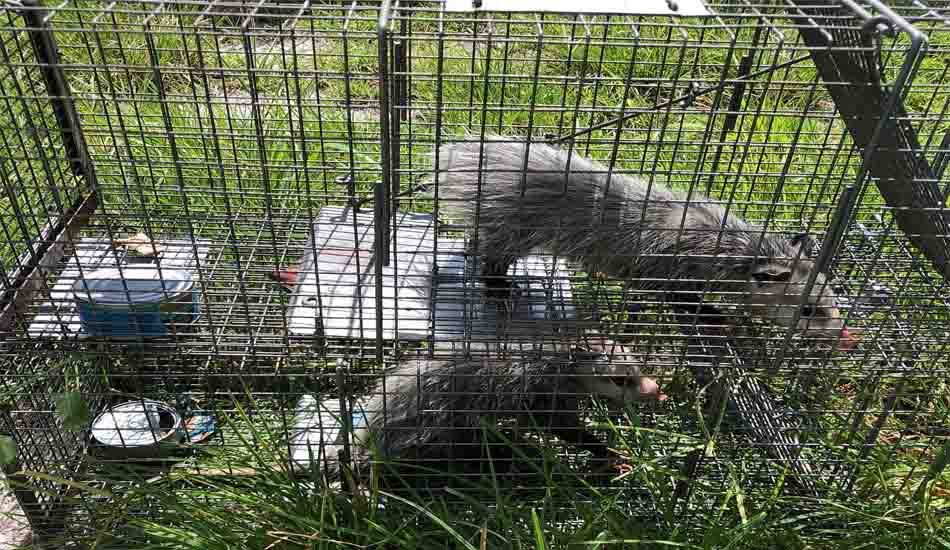What Do Possums Eat?
One of the keys to preventing opossums from disturbing household routines is to take care when storing trash. Trash should be stored in sealed containers that have been designed with animal-proof lids. It is a great idea to further secure the trash by storing that container in a shed or other external structure. Pet food should be taken indoors during the night – this acts to deter opossums and other wildlife investigation. Homeowners should check external areas and remove any other food sources such as fallen fruit and berries and ensure that woodpiles and logs are secured. Weather permitting, the exterior of the home should be checked for access points such as holes in the exterior of buildings – broken vent covers are a common access point. Tree branches should be trimmed back from the home’s exterior as opossums often use these to gain entry – they are extremely good at climbing and leaping.
Health Issues – Rabies and Other Threats from Nuisance Wildlife
Wild animals are carriers of diseases that can pose a serious health risk to human beings – rabies is less of a threat than many suppose – but opossums can carry a variety of other diseases. Attacks by wildlife can also cause physical harm. For further information on nuisance wildlife, review these guides.
Hints and Tips – Finding the Right Service Provider
Suppose you suspect that your home has become infested by opossums. In that case, you will need the services of an accredited and professional pest control expert. They will conduct an inspection and advise you on the correct ways to rectify the problem. They may also provide traps and fencing solutions. They will also be able to provide you with further information on opossums that will allow you to prevent further infestations.
Facts about Opposums
Habits
Opossums are nocturnal and active after sunset. Unless it is breeding season, they are solitary by nature and are loners. They prefer to stick to dry land – but are strong swimmers. They are skilled climbers, making use of their opposable rear-facing thumbs and tails to climb trees and man-made structures.
Opossums will usually rely on fruit, insects, and grains as food sources in the wild. However, they are more than happy to help themselves to the contents of compost heaps garbage cans and thrive on a pet food diet. They are opportunistic feeders who have been recorded feeding on birds, mammals, and fish.
Female opossums give birth to between two and three litters each year. These litters typically consist of 7 young. The young opossums, like most marsupials, spend the first weeks of their life in the mother’s pouch. Once they are weaned, they will leave the pouch to search for their ranges.
Habitat
Opossums will make their homes in hollow logs, brush piles, abandoned burrows, and tree cavities in the wild. They will also make their homes in human shelters such as garages. Their preferred natural habitat is swampy areas or near running water. But they are adaptable and can also be found in arid areas, woods, and open fields. They require easy access to both water and food.
Damage caused
Opossums will often be found in attics and crawlspaces, as well as garages. Theor nests are messy, and they can damage ductwork and insulation. They can also dig up lawns in search of food. They can devastate poultry and game birds’ stocks and disturb nesting sites. If they are threatened, they bare their teeth and hiss – and in extreme cases, they may bite.
Due to their habits, opossums are unlikely to carry rabies. Still, they can host several other diseases, including leptospirosis, tularemia, and tuberculosis (among others). In urban areas, they commonly carry fleas and mites.
They are also well known for ‘playing possum’, imitating a dead animal. This may cause predators to think that they are diseased. In this posture, they draw back their lips and foam around the mouth, giving the impression that they have rabies. They also extrude a stinking anal secretion. These acts are not a sign of rabies – they are simply part of a natural defense mechanism.

